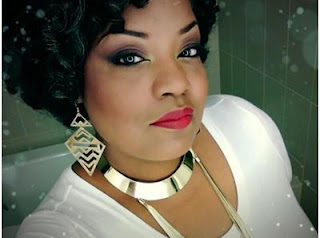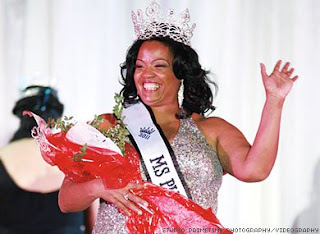By: Michelle Anderson
In the 80's, I remember watching the news finding out that stars like Rock Hudson, Liberace and tennis great, Arthur Ashe had died from AIDS, a shameful disease brought on by reckless behavior. In my mind, I felt they deserved what they had because of their sexual habits. Little did I know in a few years I would be met with the same diagnosis.
In April 1999, while in rehab, I had been told that I was HIV-positive. I thought that I was going to die, and that no one would ever love me again. I was riddled with shame and fear. After finding out, I shared my diagnosis with my mother who told me, "If you hadn't been doing what you were doing, you wouldn't have what you got!" She hung up the phone on me. I cried a cry so deep, I felt as though my soul was leaving my body. I believed her, and I believed that I, too, deserved my diagnosis. I was met with more HIV-related stigma a few days later while in rehab. I told myself to never tell anyone else again. I lived in silence, pain and relapses for many years. And in 2006, I said no more.
I found myself at a crossroad in March 2006. I decided it was time to leave the life I had led because it was literally killing me. I did not want to be that 'Jane Doe' found on the streets of Las Vegas, nor did I want to be remembered for doing selling dope, getting high and dying a horrible death. My children did not deserve that, my grandchild didn't deserve it, hell neither did I. So, I moved back to Texas, and started to regain my life back. I made amends to the people I had harmed, and started the process of redefining my legacy.
Housing was a number one priority for me. I was able to receive housing through a program designed for people living with HIV. Once I moved in, I was able to catch the break that I needed. I set goals for myself, and I achieved them. I began to embrace all the good things that was happening in my life. I felt proud of my accomplishments. But deep down inside living in housing with other people living with HIV was shameful. I did not want people to know where I stayed. Because if they found out, then they would find out about me, and I promised that I would never allow anyone to shame me again.
I managed to forge some friendships during my time at the housing program. I listened to stories of how people received their diagnosis. My heart began to soften, and my thoughts began to change. It was during my stay, I realized that I was terribly wrong for ever thinking that people in some way deserved an HIV diagnosis. I learned that loving someone was possible regardless of their HIV status. I met a woman who told me, "You have done nothing wrong to become positive." Little did I know my journey would shift and I would become an HIV advocate.
The early years of my HIV advocacy allowed me to share my story, and to use my life to help create, shift and change policy for the betterment of people living AND thriving with HIV. I gained strength in sharing my story because it was something I had to do to save my own life. I was sick and tired of how I was being treated because of my diagnosis. I joined Campaign to End AIDS, and became an activist. I used my voice to help create what the National AIDS Strategy should look like for a Black woman living with HIV. After being appointed to serve on the ADAP Advocacy Association's board of directors, I fought along with other fellow advocates to end waiting lists under the AIDS Drug Assistance Programs. I also joined a caravan across the U.S. to attend the last Presidential debate between Senator McCain and then Senator Barack Obama. In front of TV cameras, and hundreds of people, I stood up on a chair and yelled out for the first time since 1999, that I was HIV positive and I mattered! From that point on I was no longer silent.
I gained power that day, which led me to wanting to do more because for the first time, I was able to say out loud, "I am HIV positive." I had to do something, and my advocacy also needed to move from just being a part of a group of folk who were like me. I needed to talk with other women who did not identify with their own risks. I was able to do so by infuriating a pageant system. Never thinking that I would win, I wanted to share my experiences in hopes of changing the lives of other women and their idea around HIV transmission. And in 2011, I made history by becoming Ms. Plus America, the first only known Black HIV positive woman to run in mainstream pageantry and win a national pageant title.
Holy Shit!!! I done told everybody. There ain't no going back now! For the first time ever, I felt I was reaching my goal of leaving a legacy for my children and grandchildren to be proud of. Though I no longer share my story story the way I have historically done so. I use my experiences centered in the reproductive justice framework to address race, class and gender to fight against systemic oppression that leads to many issues in the Black community such as poverty, lack of healthcare and access to resources to maintain quality of life that can lead to an HIV diagnosis.
I am still here 21 years later.... Living, surviving and thriving unapologetically with HIV!
Disclaimer: Guest blogs do not necessarily reflect the views of the ADAP Advocacy Association, but rather they provide a neutral platform whereby the author serves to promote open, honest discussion about public health-related issues and updates.
Thursday, June 18, 2020
Reflections from an HIV Advocate's Journey: Michelle Anderson
Subscribe to:
Post Comments (Atom)




No comments:
Post a Comment